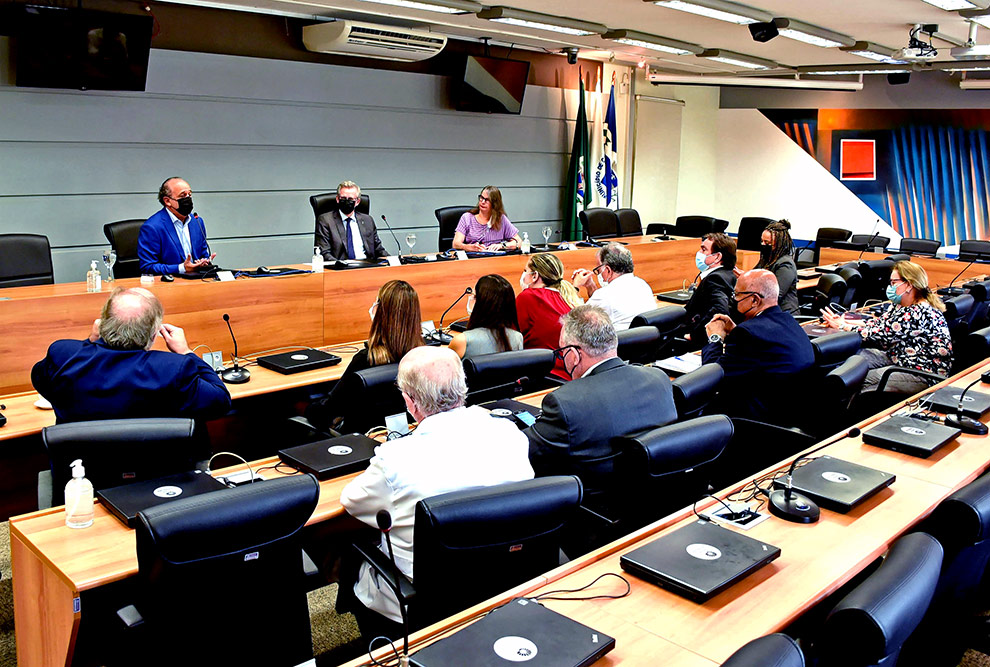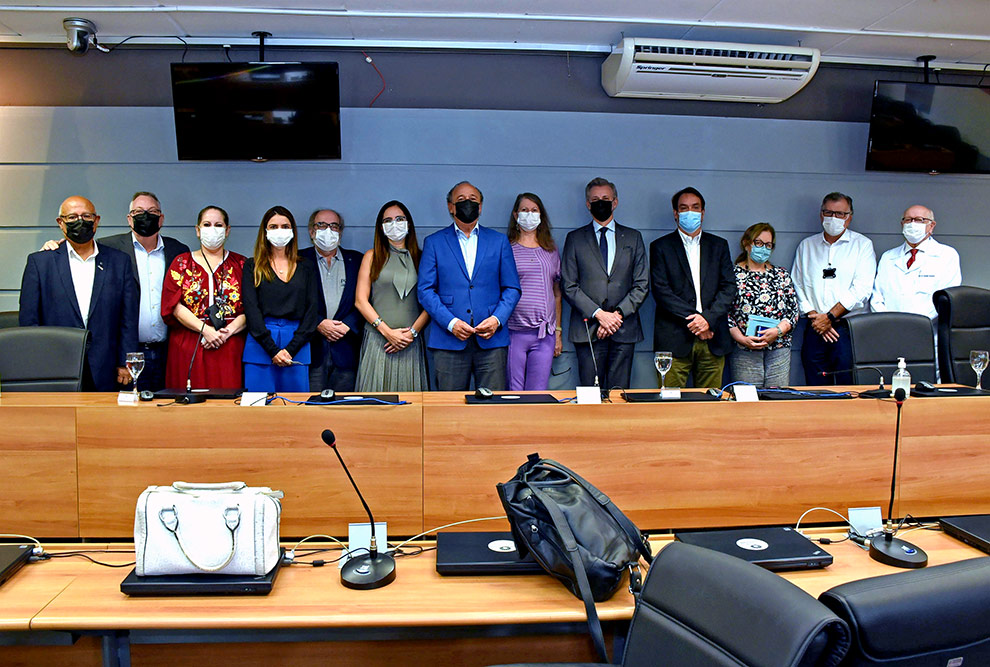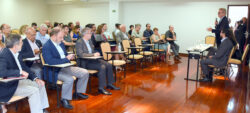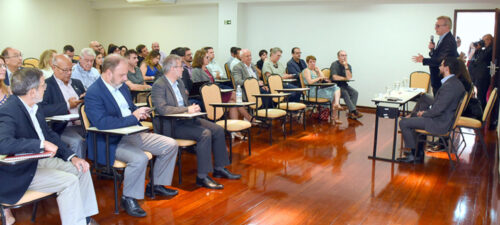Unicamp and the São Paulo State Court of Auditors (TCESP) signed, this Wednesday (21st), an unprecedented institutional cooperation agreement that foresees, among other measures, the carrying out of courses together, the elaboration of research and development programs in areas such as education and health and innovation in areas of artificial intelligence and data.
Signed by the dean Antonio José de Almeida Meirelles and the president of the Court, counselor Dimas Ramalho, the agreement is valid for five years, with a forecast for renewal.
The agreement provides for meetings between TCESP members and Unicamp employees, in addition to the joint organization of academic events. According to Ramalho, this same type of agreement was signed with USP (University of São Paulo) and will be signed with Unesp (São Paulo State University).

“The Court, as an external control body, must seek improvement. And where is there knowledge, science? Where can we seek help to improve our inspection mechanisms, our procedures?”, he asks. “At universities,” he replies.
“Being one of the largest in Brazil and in the world, Unicamp can help us improve our inspection function. And we can also help Unicamp to improve its management. I think that, with this, both institutions and the taxpayer, who needs the knowledge of the University and the work of the court, win”, says Dimas Ramalho.
The agreement authorizes the exchange of information of academic interest, conducting courses in partnership, cooperative preparation of research, development and innovation projects and any other form of collaboration that is aligned with the purposes of the two institutions.
According to the rector of Unicamp, the agreement opens up many possibilities for interaction. For Meirelles, the approach will allow the University to contribute to the training, improvement and qualification of personnel for the Court. In exchange, they may receive more direct guidance on their management systems, in order to improve them in line with TCESP's suggestions.
He draws attention, however, to a third aspect. He says that the agreement may eventually generate possibilities for the implementation of public policies in various areas and create the basis for new laws that resolve, for example, outstanding questions about the role of university foundations in the State of São Paulo.
The dean also highlighted the role that the Court plays in guiding and stimulating certain public policies. “And this Court's concern can create a very strong area of collaboration with universities. Especially because we want to help with that”, says the dean.
At the agreement's signing ceremony, the possibility of creating a state program similar to that of pedagogical residency, aimed at pre-university public education, was discussed. There were also suggestions for programs aimed at the health area. Ramalho said he would take the suggestions to the new state government.
“This induction that TCESP can exercise should be very important for universities because, although we have a lot of availability to do this, we need to have access to public educational institutions at state and municipal level. Eventually, we need actions from the state government to help our students carry out these initiatives. So, the court can play a catalytic role in this whole process”, concluded Meirelles.

Accounting, financial and budgetary oversight
TCESP is responsible for the accounting, financial, budgetary, operational and property inspection of the State of São Paulo and its municipalities. The Court supervises the fiscal management of the municipalities, the application of resources in priority areas, such as education, compliance with the Fiscal Responsibility Law (LRF), the execution of works, tenders, both by city halls and municipal chambers and autarchies, foundations and public higher education institutions.
Under the agreement, institutions will be free to use any scientific and technical information created or transferred during collaborative academic activities for the purposes of their research and development projects and academic publications. There will be no transfer of financial resources between the University and the Court.
campus tours
After signing the agreement, the president of TCESP took part in a tour of the external area of the Unicamp Hospital de Clínicas facilities, visited the headquarters of Inova, the Innovation Agency, in the HIDS-Unicamp region (International Hub for Sustainable Development ), and participated in another round around the CNPEM (National Center for Research in Energy and Materials) and the National Synchrotron Light Laboratory (LNLS) – responsible for the operation of Sirius, the largest and most complex scientific infrastructure built in the country and a of the most advanced synchrotron light sources in the world.
Originally published on Unicamp website





